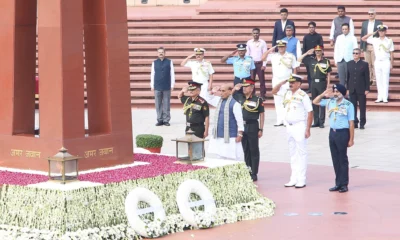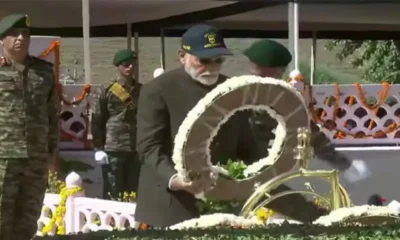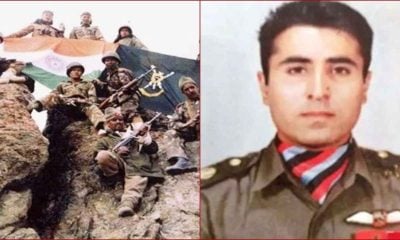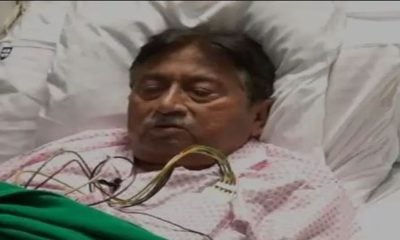India News
Kargil Vijay Diwas 2023: History, significance and interesting facts
26 July 2023, is going to mark the 24th anniversary of Kargil Vijay Diwas.

India News
MK Stalin predicts frequent PM Modi visits to Tamil Nadu before assembly election
MK Stalin has said Prime Minister Narendra Modi will visit Tamil Nadu more often ahead of the Assembly election, calling the tours politically motivated and questioning the Centre’s support to the state.
India News
Shashi Tharoor questions Centre over Kerala name change to Keralam
Shashi Tharoor has criticised the Centre’s decision to approve renaming Kerala as Keralam, questioning its impact and pointing to the lack of major projects for the state.
India News
Tamil Nadu potboiler: Now, Sasikala to launch new party ahead of election
Sasikala has announced the launch of a new political party ahead of the Tamil Nadu Assembly elections, positioning herself against AIADMK chief Edappadi K Palaniswami.
-

 Latest world news21 hours ago
Latest world news21 hours agoTrump says tariffs will replace income tax, criticises Supreme Court setback in key address
-

 Latest world news22 hours ago
Latest world news22 hours agoTrump repeats claim of averting India-Pakistan nuclear war during Operation Sindoor
-

 Latest world news21 hours ago
Latest world news21 hours agoPM Modi to begin two-day Israel visit, defence and trade in focus
-

 India News21 hours ago
India News21 hours agoShashi Tharoor questions Centre over Kerala name change to Keralam
-

 India News12 hours ago
India News12 hours agoMK Stalin predicts frequent PM Modi visits to Tamil Nadu before assembly election
-

 Latest world news12 hours ago
Latest world news12 hours agoIndia eyes Rs 8,000 crore mid-air refuelling aircraft deal as PM Modi begins Israel visit















